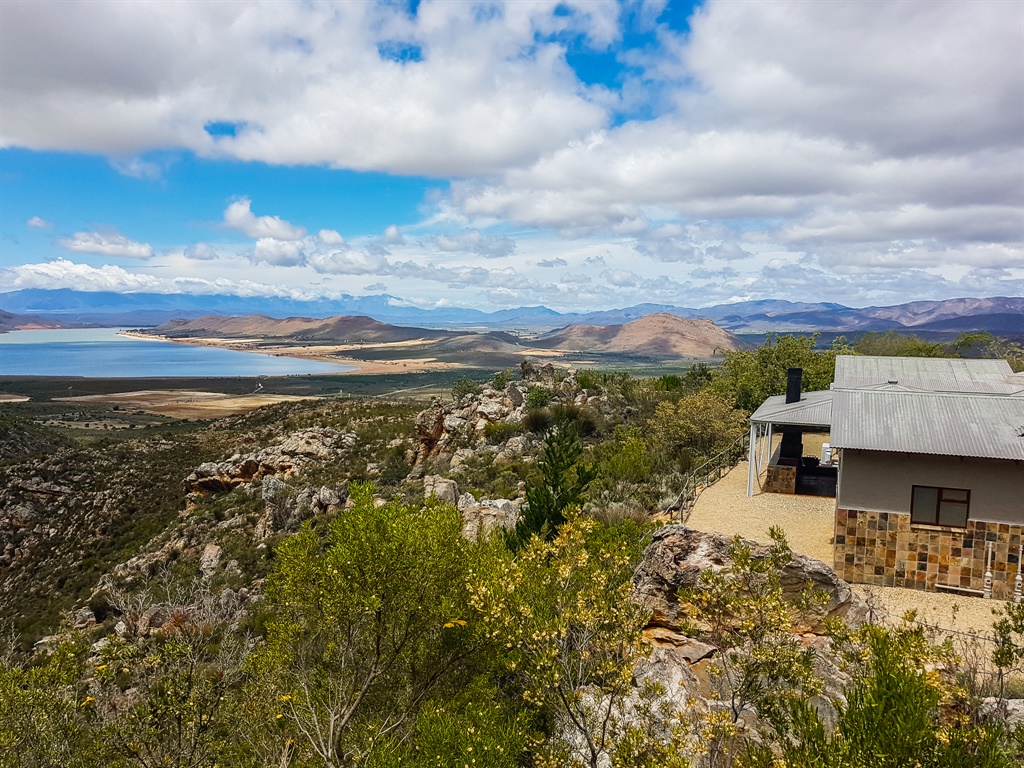
South Africa is unique in its biodiversity, which is facing threats in some quarters where European ideals of what landscapes should look like are perpetuated, writes Alanna Rebelo.
A wave of solidarity is spreading across the world as the international community counts the days to the adoption of a new global biodiversity framework. This framework will be based on negotiations that will take place in the lead-up to the United Nations Biodiversity Conference in China from 11-24 October 2021 (#COP15).
On 22 May, we celebrate International Day for Biological Diversity, and we have an opportunity to increase our understanding and awareness of biodiversity issues, locally and internationally.
South Africa is extremely special globally in terms of its biodiversity, the rich diversity of life on earth. We rank within the top 10 megadiverse nations. We have the second-highest plant endemism in the world (i.e. they occur nowhere else), and the third-highest endemism of marine species, according to our National Biodiversity Assessment (NBA) 2018.
The Cape Floristic Region in which the city of Cape Town is found, is also a World Heritage Site and the only biodiversity hotspot found entirely within a single country. It makes up less than 0.5% of Africa but contains about 20% of Africa's flora.
Unique biodiversity
Just how unique the Cape is in terms of biodiversity was driven home in the latest iNaturalist City Nature Challenge (the Oscars of Citizen Science), where the City of Cape Town officially scooped up two out of three awards.
Out of 150 participating cities worldwide, 1 315 Capetonians recorded over 71 142 natural observations and 4 250 species. The cities in second place came nowhere close: the Washington DC Metro Area with 43 254 observations and Hong Kong with 3 548 species.
Why should we care about our rich biodiversity heritage? Besides evidence of the importance of nature for our health and well-being, biodiversity also provides jobs. The NBA 2018 estimated that there were more than 418 000 biodiversity-related jobs in South Africa. This was besides the jobs that nature brought in through tourism each year.
Despite the value of biodiversity for our health and well-being, biodiversity loss (species extinctions) continues to rise globally and at an alarming rate. According to the WWF's 2020 Living Planet Report, there has been a 68% average decline of birds, amphibians, mammals, fish, and reptiles since 1970. This is up by 10% since their 2016 assessment. They conclude that "our relationship with nature is broken".
READ | Botany PhD student rediscovers extinct plant in Piketberg
Slightly closer to home, the 2018 South African NBA found that 22% of South Africa's 458 ecosystem types were threatened, and 13% of all taxa were threatened. The city of Cape Town has the second-highest extinction rate globally (second only to Hawaii).
The Table Mountain National Park is a World Heritage Site, and a significant tourist attraction. In terms of biodiversity, the park contains more than 2 200 plant species alone. It also contains Peninsula Granite Fynbos (43% remaining, only 30% conserved) and Cape Flats Sand Fynbos (14% remaining, only 1% conserved) which are types of fynbos that are critically endangered. Threats to these fynbos types include winelands and urban development.
Sometimes threats to biodiversity may not be blatantly evident, like bulldozing Cape Flats Sand Fynbos for a housing development or pristine Peninsula Granite Fynbos for a vineyard expansion. Sometimes biodiversity is threatened by seemingly innocuous initiatives, such as planting trees in the wrong places (or Spekboom), or installing beehives for domestic bees, which threaten our wild bee populations.
Review
At the moment in Cape Town, the review of the Tokai Cecilia Management Framework, scheduled for 25 May 2021, is causing quite a stir, and is an essential case in point. Retaining plantations, or transitional tree planting, which is what will be discussed at the review, at the cost of restoration, is a seemingly innocuous activity that has serious consequences for biodiversity.
As part of Table Mountain National Park, Tokai Park is one of the last biodiversity corridors connecting mountain fynbos to Cape Flats Sand Fynbos. Tokai Park is very biodiverse, with more than 550 native plant species, including some unique rare plants on the brink of extinction (the almost-extinct Tokai Cape Flats Silkypuff, extinct in the wild Erica verticillata and Erica turgida).
Yet the fate of this site and all these plant species lies in the hands of the public.
SANParks is conducting a stakeholder engagement process around the future of the Tokai and Cecilia sites. This review is an opportunity to eliminate the alien tree plantations and restore and conserve these sites, which will be a massive win for our native biodiversity.
Yet, some people still wish to retain the biodiversity-poor plantations or push for transitional tree planting instead of fynbos restoration at the expense of biodiversity.
READ | Cape's plants are dying out and local authorities need your help
In a country that is trying to decolonise, it seems that fighting to retain European-styled treed landscapes in the fynbos is contrary to a transformation agenda. Especially when there are many urban parks and more than 10 local greenbelts where shaded recreation can be enjoyed and more trees planted. Who will stand up to defend the voiceless native plant species on the brink of extinction?
This lack of appreciation of fynbos may, in part, be a legacy of the biology curriculum from pre-democratic South Africa, which perpetuated European ideals of what landscapes should look like, and misconceptions about the value of trees. For example, thinking trees should be planted everywhere instead of appreciating that many South African ecosystems have no or few trees, such as fynbos shrublands and grasslands.
The famous words uttered by Senegalese forestry engineer Baba Dioum in 1968, emphasises the importance of education in shaping our value-systems:
This year's Biodiversity Day slogan is: "We're part of the solution #ForNature". Are you feeling desperate about biodiversity loss, but helpless in terms of how to help? If yes, you could make a direct contribution by:
- participating in local biodiversity-related advocacy, for example, the Tokai Cecilia Management Framework Review;
- getting involved in a local nature conservation group, for example, a certified WESSA Friends group;
- joining a local alien-clearing group (find your closest group here);
- planting indigenous species in your garden and getting rid of alien invasives;
- avoiding the use of pesticides, herbicides or other household poisons; and
- reducing your carbon footprint by buying more local products and eating a lower proportion of animal calories.
Every remaining day before the UN Biodiversity Conference counts to make your voice heard loud and clear. Since South Africans have such a rich biodiversity heritage, it is our duty to let the world know that we wish for a strong global biodiversity framework that will "bend the curve" on biodiversity loss.
- Dr Alanna Rebelo is a postdoctoral researcher in the Department of Conservation Ecology and Entomology at Stellenbosch University.
To receive Opinions Weekly, sign up for the newsletter here. Now available to all News24 readers.
*Want to respond to the columnist? Send your letter or article to opinions@news24.com with your name and town or province. You are welcome to also send a profile picture. We encourage a diversity of voices and views in our readers' submissions and reserve the right not to publish any and all submissions received.
Disclaimer: News24 encourages freedom of speech and the expression of diverse views. The views of columnists published on News24 are therefore their own and do not necessarily represent the views of News24.




 Publications
Publications
 Partners
Partners























